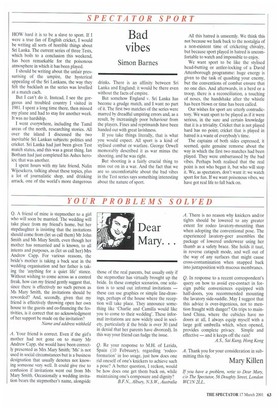0. A friend of mine is stepmother to a girl
who will soon be married. The wedding will take place from my friend's home, but her stepdaughter is insisting that the invitations should come from (let us call them) Mr John Smith and Ms Mary Smith, even though her mother has remarried and is known, to all intents and purposes, as (let us call her) Mrs Andrew Capp. For various reasons, the bride's mother is taking a back seat in the wedding organisation and her father is taking the 'anything for a quiet life' stance. Without wishing to come across as a control freak, how can my friend gently suggest that, since there is effectively no such person as Ms Mary Smith, the invitations should be reworded? And, secondly, given that my friend is effectively throwing open her own house to the guests and co-financing the festivities, is it correct that no acknowledgment of her support be made on the invitation?
Name and address withheld A. Your friend is correct. Even if the girl's mother had not gone on to marry Mr Andrew Capp, she would have been correctly presented as Mrs Mary Smith; `Ms' is not used in social circumstances but is a business designation that usually denotes not knowing someone very well. It could give rise to confusion if invitations went out from Ms Mary Smith. Occasionally a wedding invitation bears the stepmother's name, alongside those of the real parents, but usually only if the stepmother has virtually brought up the bride. In these complex scenarios, one solution is to send out informal invitations — these can use graphics or simple line-drawings, perhaps of the house where the reception will take place. They announce something like 'Charlie and Camilla would like you to come to their wedding'. These informal invitations are now widely used in society, particularly if the bride is over 30 (and in denial that her parents have divorced). In this way your friend can fudge the issue.


































































 Previous page
Previous page